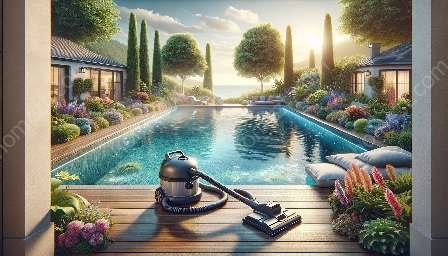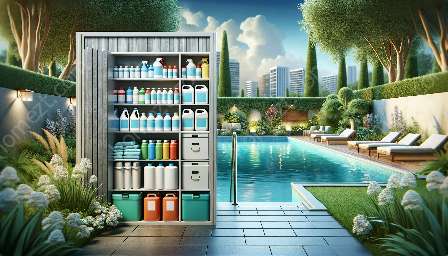Introduction
Welcome to our comprehensive guide on pool maintenance schedules! Keeping a pool clean and in proper working condition requires regular upkeep and attention. In this topic cluster, we will cover the importance of pool maintenance, the steps involved in pool cleaning, and tips for maintaining swimming pools and spas. Whether you're a pool owner or a professional in the pool maintenance industry, you'll find valuable insights in this guide.
Importance of Pool Maintenance
Regular maintenance is essential for preserving the cleanliness, safety, and functionality of a pool. Without a proper maintenance schedule, pools can become breeding grounds for bacteria and algae, leading to waterborne illnesses and unsightly water quality. Moreover, neglected pools are prone to equipment malfunctions and costly repairs. By adhering to a consistent maintenance plan, pool owners can ensure that their pools remain enjoyable, safe, and visually appealing.
Pool Maintenance Schedules
Developing a pool maintenance schedule involves a series of routine tasks that help to keep the pool clean and properly functioning. These tasks typically include:
- Skimming the surface to remove debris
- Vacuuming the pool floor and walls
- Brushing the walls and tiles to prevent algae growth
- Checking and adjusting the chemical levels
- Inspecting and servicing the pool equipment
- Backwashing the filter as needed
By following a consistent schedule for these tasks, pool owners can ensure that their pool remains in top condition throughout the swimming season. Additionally, adhering to a maintenance schedule can prolong the lifespan of the pool and its equipment, ultimately saving money on repairs and replacements.
Pool Cleaning
Pool cleaning is a crucial aspect of maintenance that directly impacts water quality and clarity. A regular cleaning routine will involve the use of pool skimmers, vacuums, and brushes to remove debris, algae, and other impurities from the pool. In addition, maintaining proper chemical levels is essential for preventing bacterial growth and ensuring balanced water chemistry.
Effective pool cleaning practices may also include shock treatments, tile scrubbing, and the use of pool covers to reduce debris accumulation. Pool owners should be mindful of the type of cleaning products they use to avoid damaging the pool's surfaces and equipment. By following best practices for pool cleaning, individuals can enjoy a sparkling, refreshing pool that is inviting to swim in.
Swimming Pools & Spas Maintenance
In addition to maintaining the pool itself, it is important to focus on the surrounding areas such as the pool deck, furniture, and landscaping. Regularly cleaning and attending to these elements can contribute to the overall appeal and functionality of the pool area. For spas and hot tubs, specific maintenance routines are needed to ensure optimal performance and water quality.
Proper maintenance of swimming pools and spas includes attention to water circulation, filter maintenance, and temperature control. By staying on top of these tasks, pool and spa owners can create a relaxing and hygienic environment for their family and guests.
Conclusion
By implementing a well-structured maintenance schedule, pool owners can enjoy the benefits of a clean, safe, and beautifully-maintained pool. Regular cleaning and maintenance not only enhance the aesthetics and functionality of the pool but also contribute to a positive swimming experience for everyone. We hope this guide has provided you with valuable insights and practical tips for maintaining your pool and spa to a high standard.





























